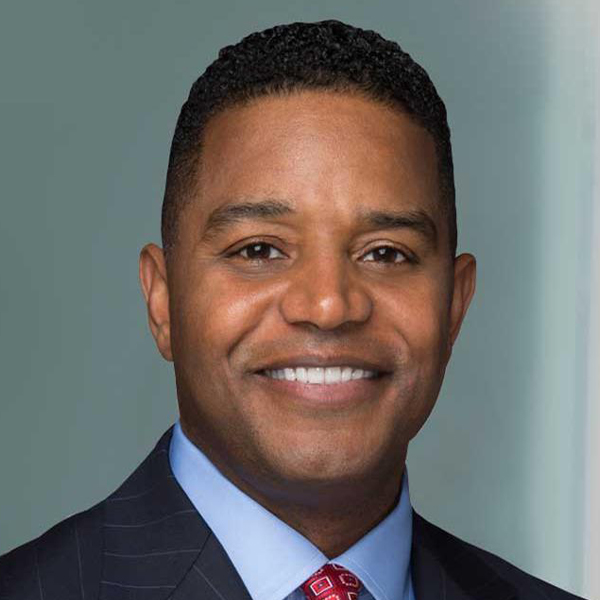Exelon released its 2022 Sustainability Report in mid-July, and CEO Calvin Butler had top-line figures to crow about during the company’s second-quarter earnings call Wednesday.
“We have connected over 200,000 customers with over 3 GW of renewable energy resources, a 16% increase over 2021,” Butler said. “We saved close to 25 million MWh in 2022 … a 9% increase that avoided 9.5 million metric tons of greenhouse gases and saved customers over $30 million at our average retail rate.”
Butler sees the U.S. energy transition as a major growth driver for Exelon as a pure-play transmission and distribution company, following its separation from Constellation Energy last year, a message that reverberated throughout the call.
“We anticipate investing over $31 billion to support the energy transformation” over the next four years, he said. Also, the Exelon Foundation has invested $20 million in companies developing innovative climate solutions, he said.
Other key moves to advance the transition included an announcement that PJM had assigned Exelon utilities $870 million of projects for transmission system upgrades related to the 2025 deactivation of the 1,295-MW Brandon Shores coal-fired power plant south of Baltimore.
PJM originally had set and approved the upgrade costs at $786 million, but Exelon has since “refined” the project scope and cost, which is now estimated at $870 million, according to a company email. (See “Brandon Shores Deactivation to Require $786M in Grid Upgrades,” PJM PC/TEAC Briefs: June 6, 2023.)
Butler also talked up Pepco’s new three-year rate plan for its Maryland customers, submitted to the state’s Public Service Commission in May.
The “Climate Ready Pathway Plan” is aligned with Maryland’s goal of reducing its GHG emissions 60% by 2031 and reaching net zero by 2045, Butler said. “The proposal includes over $150 million in climate solution programs to help Maryland meet its goals in the areas of transportation electrification, building decarbonization, beneficial electrification and distributed energy integration.”
The 12 programs include a series of “make-ready” incentives ― to install wiring or other behind-the-meter infrastructure ― aimed at increasing the installation of residential and commercial electric vehicle chargers and supporting building electrification. Grid upgrades and modernization to improve reliability and allow for increased integration of renewables also are part of the plan.
If approved, the plan would add about $5.85/month to consumers’ electric bills in 2024-2027, according to Pepco.
Pepco submitted a similar multiyear Climate Ready Pathway Plan to the D.C. Public Service Commission in April, with an estimated $6.13 increase in monthly bills. The utility is projecting final decisions from Maryland and D.C. regulators in the second quarter of 2024.
Exelon’s other utilities — Delmarva Power in Delaware, Commonwealth Edison in Illinois, Atlantic City Electric in New Jersey, and Baltimore Gas and Electric in Maryland — also have rate cases in progress.
The companies have not experienced any supply chain delays related to transformers or other core system equipment, Butler said in response to an analyst question. The company is able to use its size “to not only access our current suppliers, but identify new ones,” he said. “We have not seen a shortage in our transformers. We have not seen a shortage in workforce” that might affect the utility’s operations.
EVs, Data Centers to Drive Growth
Though down from a year ago, the company’s second-quarter financial results were in line with expectations, Butler said. Exelon posted total operating revenue of $4.818 billion for the quarter, with GAAP net income of $343 million ($0.34/share), compared to $465 million ($0.47/share) in 2022.
Butler had stronger results to report on utilities’ performance on industry reliability metrics in outage frequency and duration, with the companies operating “in at least the top quartile.” Keeping customers online and getting them back online as quickly as possible if outages do occur “is getting harder to do with storms getting more frequent and severe,” he said.
“But it’s increasingly important to do as society depends more and more on electricity” he said. “Nationally, we expect to see 50% annual growth in electric cars and 12% annual growth in data centers … [which] will only strengthen as industries increasingly rely on cloud services and AI.”
In other company news, Butler announced that ComEd had reached the end of its three-year deferred prosecution agreement (DPA) with the U.S. Justice Department over 2020 bribery charges against the utility and its former CEO, Anne Pramaggiore.
A federal jury in May found Pramaggiore guilty of bribery in connection with a multiyear conspiracy to pay former Illinois House Speaker Michael Madigan (D) for passage of legislation favorable to the utility. (See Jury Finds Former ComEd CEO, 3 Others Guilty in Bribery Trial.)
Also found guilty were former ComEd lobbyist and Madigan associate Michael McClain, former ComEd Vice President John Hooker and former ComEd consultant Jay Doherty.
ComEd pleaded guilty to bribery in a DPA in July 2020, agreeing to pay a $200 million fine and cooperate with Justice Department prosecutors for three years. A federal judge dismissed the bribery charges against ComEd last month.
Butler said “the company fully complied with the DPA. … We remain committed at all levels of the company to the highest standards of integrity and ethical behavior, and we look forward to building on the trust of our customers as we continue to move forward.”
